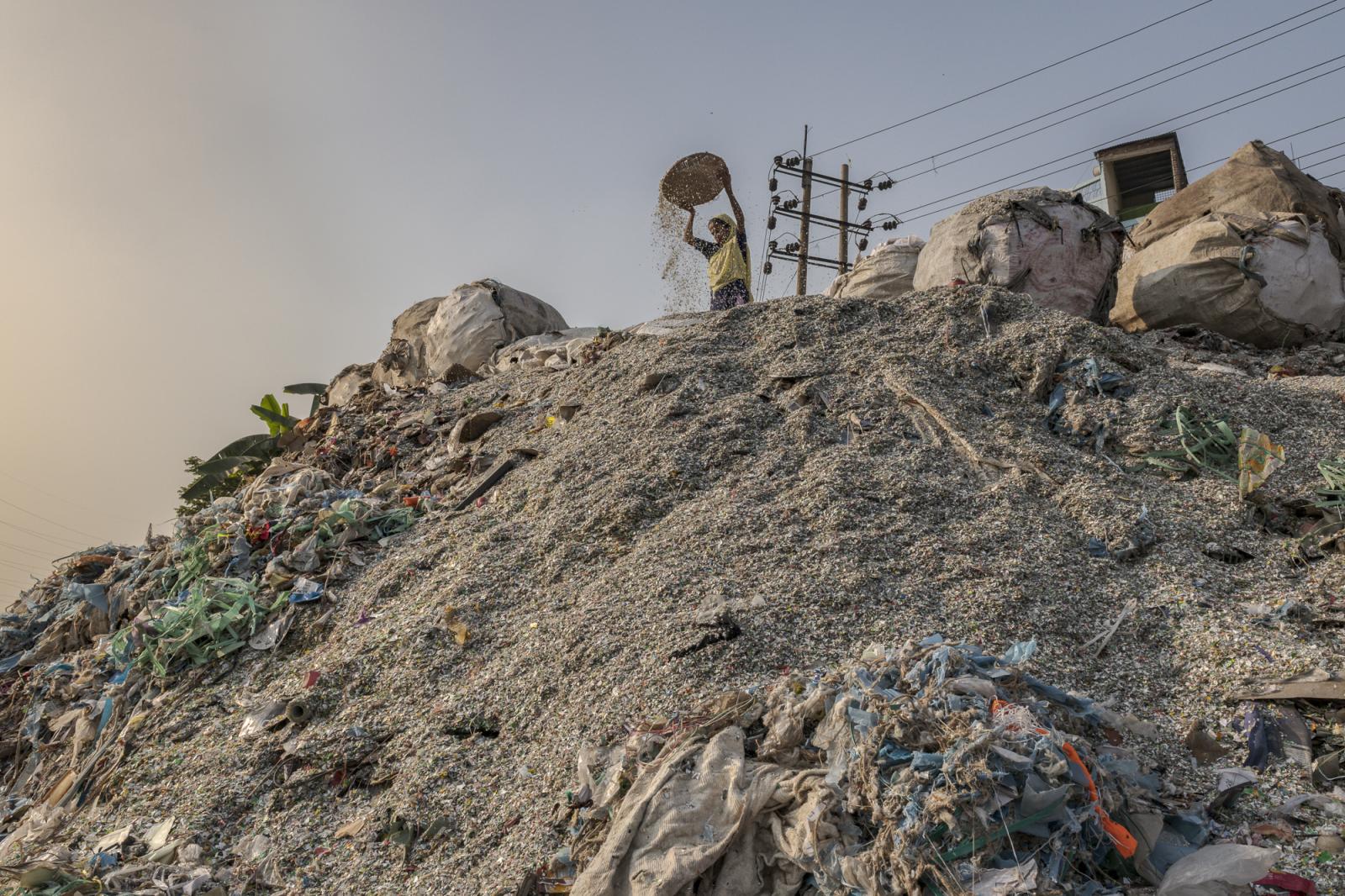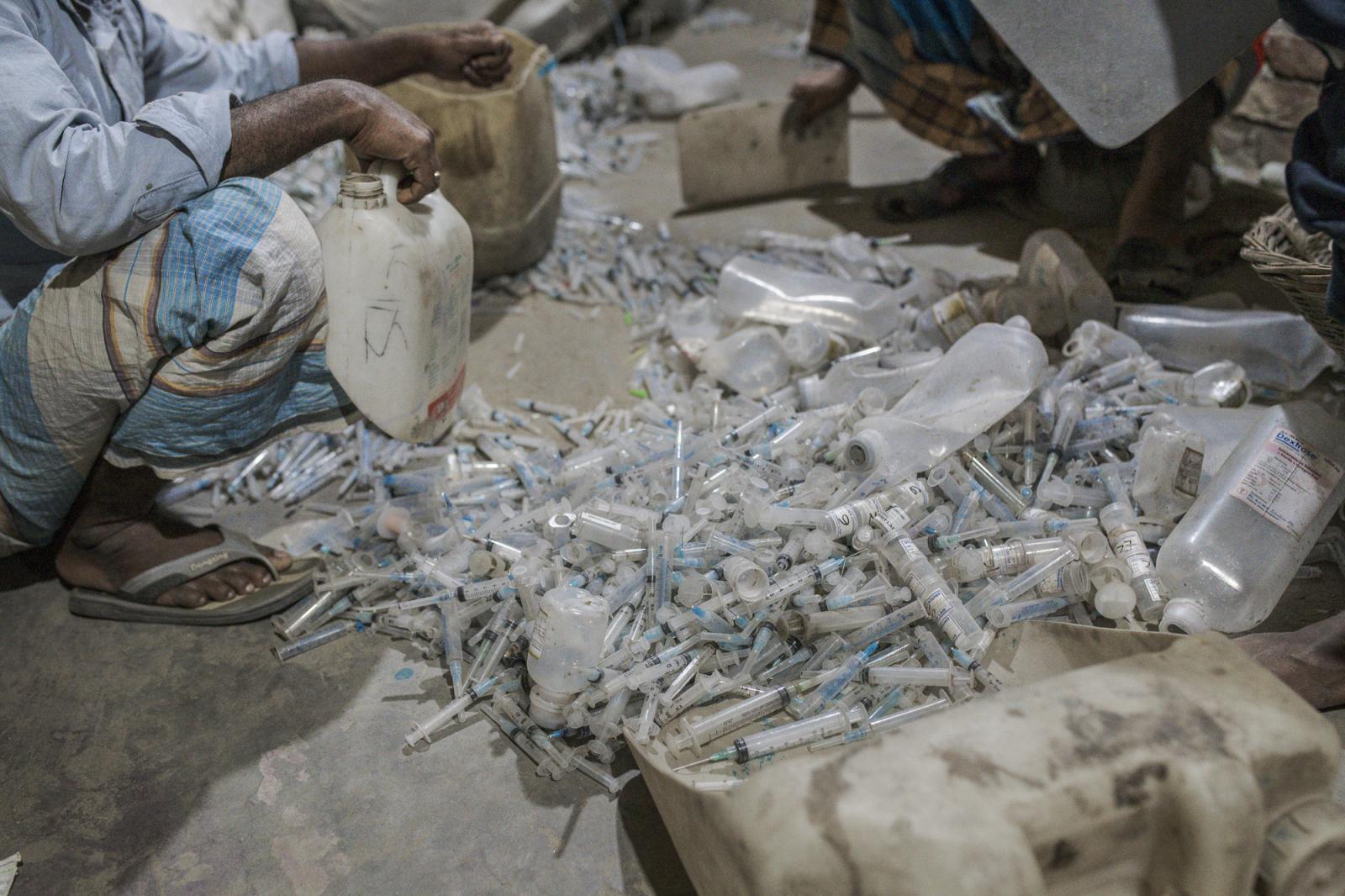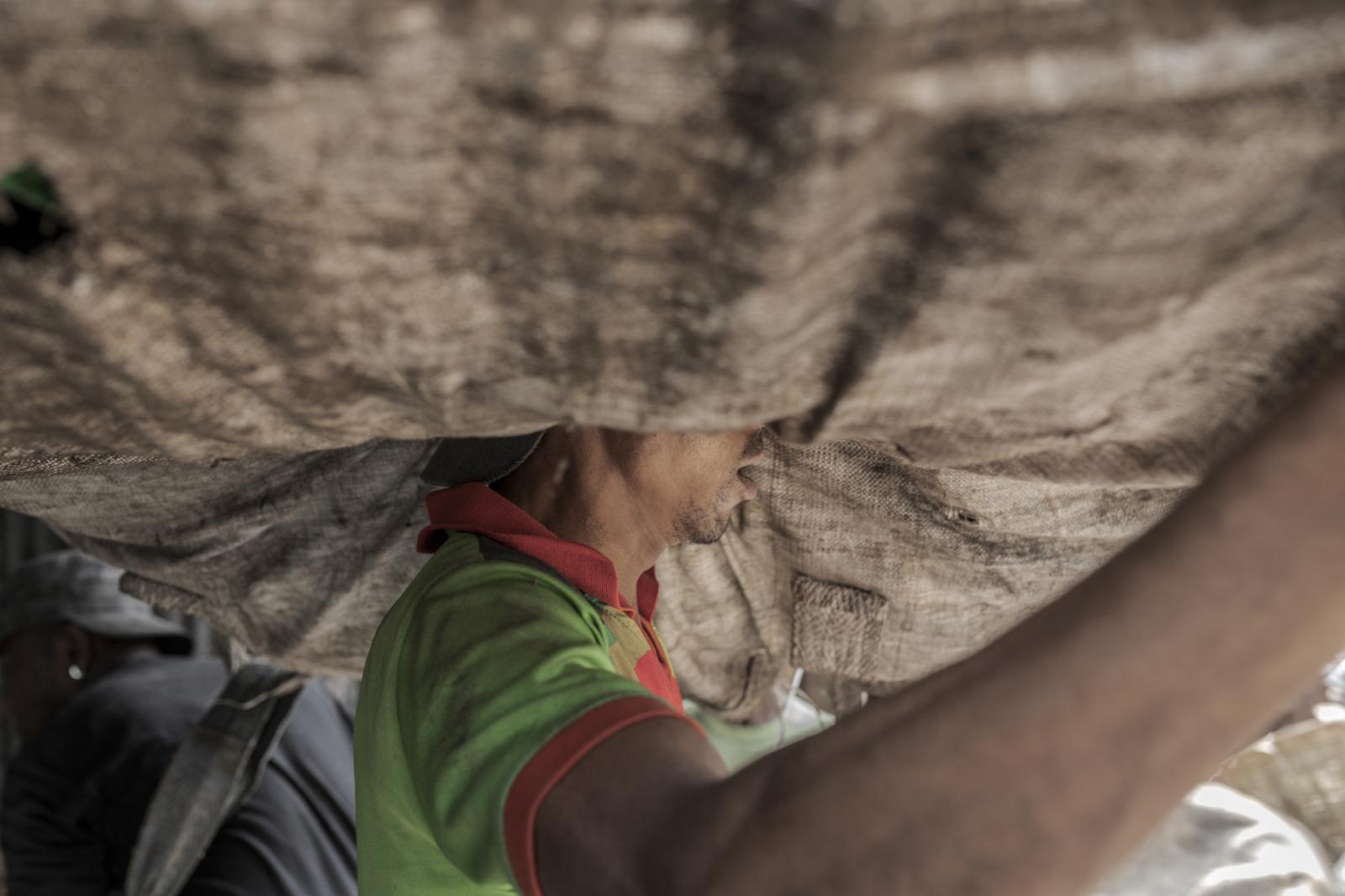Public Story
The dangerous job of recycling in Bangladesh
Summary
The plastic recycling business in Dhaka has turned entire neighborhoods into open dumps that threaten not only the environment, but also thousands of families living around them.
The plastic recycling business in Dhaka has turned entire neighborhoods into open dumps that threaten not only the environment, but also thousands of families living around them.
Thousands of people work in Dhaka recycling the 650 tons of garbage generated every day. In these places, plastic is a small treasure that is collected, separated according to its type, cut into small flakes, and washed in the waters of Buriganga river, whose ecosystem is basically dead when it reaches Old Dhaka after traveling 2,500 kilometers from the ice of the Himalayas.
Due to the bad waste management practices of the government, the industries and the society, the basic rights and health of 168 million people in Bangladesh are at risk. The water they use, the land they work and even the air they breathe are becoming more polluted every day. Different studies such as the "World Air Quality Report"(IQair, 2020) place the country as one of the most polluted in the world and Dhaka as the city with the worst air quality on the planet.
In Bangladesh, the recycling business has grown so much in the last decade that it has become the country's twelfth largest export for a total of $1 billion, and the source of informal employment for approximately five million people. Despite this recycling business being a source of income for many people, guaranteeing them between 2-3 USD per day, they live in a situation of extreme poverty and without access to basic health services.
In addition, since the start of the pandemic, the consumption of single-use plastic has increased significantly, which has led to greater amounts of plastic circulating the streets of the city, including materials considered biologically contaminated, despite the international recommendations for handling and removing of pathological waste.
Due to the urgent need for economic growth and new sources of employment, Bangladesh refuses to look at the negative environmental effects of its industrialization, turning the landscape of its ancient plains and rivers into mountains of garbage and sewage, where millions of families live daily, becoming collateral and invisible victims of the excessive use and waste of plastics in "modern life".
El negocio informal del reciclaje de desechos plásticos en Dhaka, ha convertido barrios enteros en basureros a cielo abierto que ponen en peligro no sólo al medio ambiente, sino a miles de familias que viven alrededor de ellos.
En Dhaka trabajan miles de personas reciclando parte de las 650 toneladas de basura que sus habitantes generan diariamente. En estos lugares el plástico es un pequeño tesoro que se recolecta, se separa según su tipo, se corta en pequeñas escamas, y se lava en las aguas de un río casi muerto, el Buriganga que cuando llega a Old Dhaka después de haber recorrido 2500 kilómetros desde los hielos de los Himalaya, ya es sólo agua negra contaminada.
Debido a las malas prácticas y gestiones del gobierno, las industrias y la sociedad, en el manejo de sus desechos; los derechos básicos, de salud y bienestar de 168 millones de habitantes de Bangladesh están en riesgo. El agua que usan, la tierra que trabajan y hasta el aire que respiran están cada día más contaminados. Distintos estudios como el “World Air Quality Report” (IQair, 2020) colocan al país como uno de los más contaminados del mundo y a Dhaka como la ciudad con la peor calidad del aire del planeta.
En Bangladesh el negocio del reciclaje ha crecido tanto en la última década que se convirtió en la doceava fuente de ingresos por exportación del país por un total de mil millones de dólares, y en la fuente de empleo informal de aproximadamente cinco millones de personas, que a pesar de haber encontrado en esta práctica una forma de sobrevivencia que les garantiza entre 2-3 USD diarios, vive en situación de pobreza extrema y sin acceso a servicios básicos de salud.
Además desde el inicio de la pandemia el consumo polímeros sintéticos de un solo uso aumentó significativamente, lo que propició mayores cantidades de plástico circulando en las calles de la ciudad, incluso materiales considerados como contaminados biológicamente, pese a que a las recomendaciones internacionales que existen para el manejo y eliminación de residuos patológicos.
Ante la gran desigualdad del país y la necesidad de encontrar un crecimiento económico y fuentes de empleo rápidamente, Bangladesh dejó de mirar los efectos negativos ambientales de su industrialización, convirtiendo el paisaje de sus antiguas llanuras y ríos en montañas de basuras, aguas negras, en donde millones de familias viven cotidianamente, convirtiéndose en víctimas colaterales e invisibilizadas del excesivo uso y desperdicio de los plásticos de la “vida moderna”.































